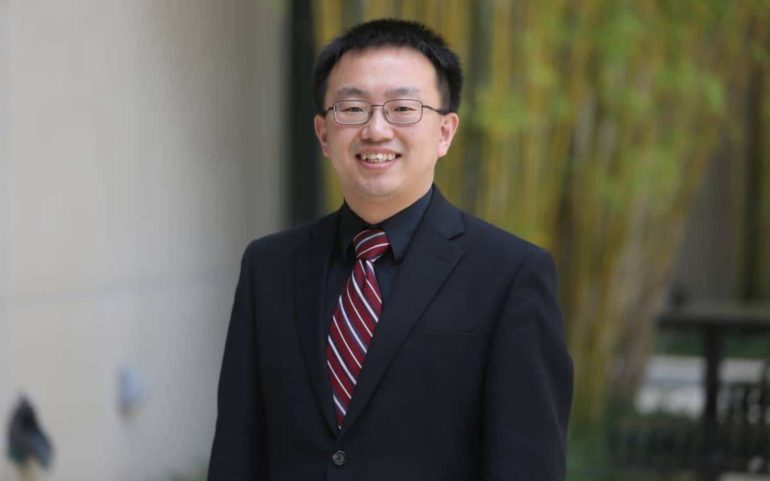Mo Wang, Lanzillotti-McKethan Eminent Scholar at the University of Florida Warrington College of Business, is among the recipients of a Fairness in Artificial Intelligence (AI) grant from the National Science Foundation (NSF) in collaboration with Amazon. Wang and a team of investigators have been awarded nearly $1 million to establish machine learning as a pillar for design in automated personnel-selection systems used in human resource management.
The NSF Program on Fairness in Artificial Intelligence in Collaboration with Amazon (FIA) supports computational research focused on fairness in AI, with the goal of building trustworthy AI systems that can be deployed to tackle grand challenges facing society.
“NSF is delighted to join with Amazon to support this year’s cohort of FAI projects,” said Henry Kautz, director of the NSF’s Division for Information and Intelligent Systems, in a press release. “Understanding how AI systems can be designed on principles of fairness, transparency and trustworthiness will advance the boundaries of AI applications. And it will help us build a more equitable society in which all citizens can be designers in and benefit from these technologies.”
Prem Natarajan, vice president of Amazon’s Alexa unit, added in the same release, “We are excited to see NSF select an incredibly talented group of researchers whose research efforts are informed by a multiplicity of perspectives. As AI technologies become more prevalent in our daily lives, AI fairness is an increasingly important area of scientific endeavor. And we are delighted to collaborate with NSF to accelerate progress in this area by supporting the work of the top research teams in the world.”
For this research project, Wang is collaborating with Nan Zhang and Heng Xu of American University’s Kogod School of Business. Their project, Using Machine Learning to Address Structural Bias in Personnel Selection, integrates statistical machine learning methods with established practices based on legal, social, behavioral and economic sciences in hiring practices.
“Automated personnel-selection systems have been widely implemented in our society for hiring employees,” Wang said. “However, the automated process is not immune to bias and unfairness. It is time for us to take a careful look at the structural bias that exists in such automations and figure out ways to eliminate its impact in order to build a more inclusive workforce.”
Wang, Zhang and Xu’s research, which began February 1, 2021 and is estimated to end January 31, 2024, is one of 11 projects chosen by the NSF to unlock new knowledge and embed those new concepts and methods in real-world systems to ensure relevance to solving societal changes.
The researchers note that this project will impact the work of policy makers by informing them of key factors pertaining to the fairness of automated personnel-selection systems as well as information technology developers by highlighting how findings in industrial-organizational (I-O) psychology literature may help improve the design of fair machine learning algorithms. More broadly, the researchers view this project as educational for students and researchers on the importance of fairness in machine learning and human resource management in addition to the importance of integrating social-science and computer-science methodologies.
The researchers plan to develop theoretical framework for the project in the first year, then design and implement machine learning algorithms in year two, and in year three, conduct tests and usability studies.
Wang has been with the Warrington College of Business since 2011 and served as department chair since 2017. His research focuses on older worker employment and retirement, occupational health psychology, human resource management and quantitative methods. Wang’s work has yielded more than 200 scholarly publications and appeared in media outlets including BBC News, NPR and The New York Times.
Wang is the founding editor for Work, Aging and Retirement and has served as an associate editor for the Journal of Applied Psychology and the director for the Science of Organizations Program at NSF. He was recently elected president of the Society for Industrial and Organizational Psychology (SIOP), serving in the role from 2022-2023. He consults with organizations and government agencies on numerous projects on personnel selection, performance management, leadership development and vocational education.
Wang earned his Ph.D. in I-O and developmental psychology and his master’s degree from Bowling Green State University and his bachelor’s degree in psychology from Peking University in China.
This story originally appeared on UF Warrington.
Check out more stories on the UF A.I. Initiative.

